Breast Reconstruction in Casablanca
Search and Compare the Best Clinics and Doctors at the Lowest Prices for Breast Reconstruction in Casablanca

Find the best clinics for Breast Reconstruction in Casablanca
With Medijump you can browse 1 facilities offering Breast Reconstruction procedures in Casablanca. The cheapest price available is $3,057 in Casablanca. And for the cheapest price globally, prices start from $477 in India.
Breast Reconstruction in Morocco
Price: $ 3,057
Breast Reconstruction in Casablanca
Price: $ 3,057
India offers the best prices Worldwide
Price: $ 477
From 23 verified reviews
Zineb Solaihi, 22 November 2019
Clean clinic very lovely staff
Compare Before & After Photos of _procedure_photos.phpBreast Reconstruction
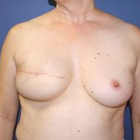
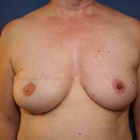
Front view
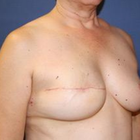
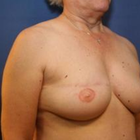
Half-side view
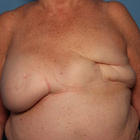
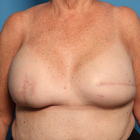
Front view
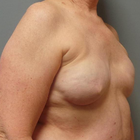
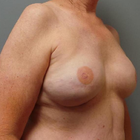
Half-side view
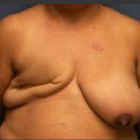
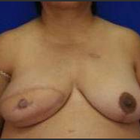
Front view
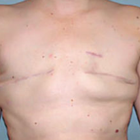
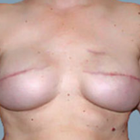
Front view
WHY US?
At Medijump, we're making medical easy. You can search, compare, discuss, and book your medical all in one place. We open the door to the best medical providers worldwide, saving you time and energy along the way, and it's all for FREE, no hidden fees, and no price markups guaranteed. So what are you waiting for?

Free

Best Price

Widest Selection

Risk-Free
What you need to know about Breast Reconstruction in Casablanca
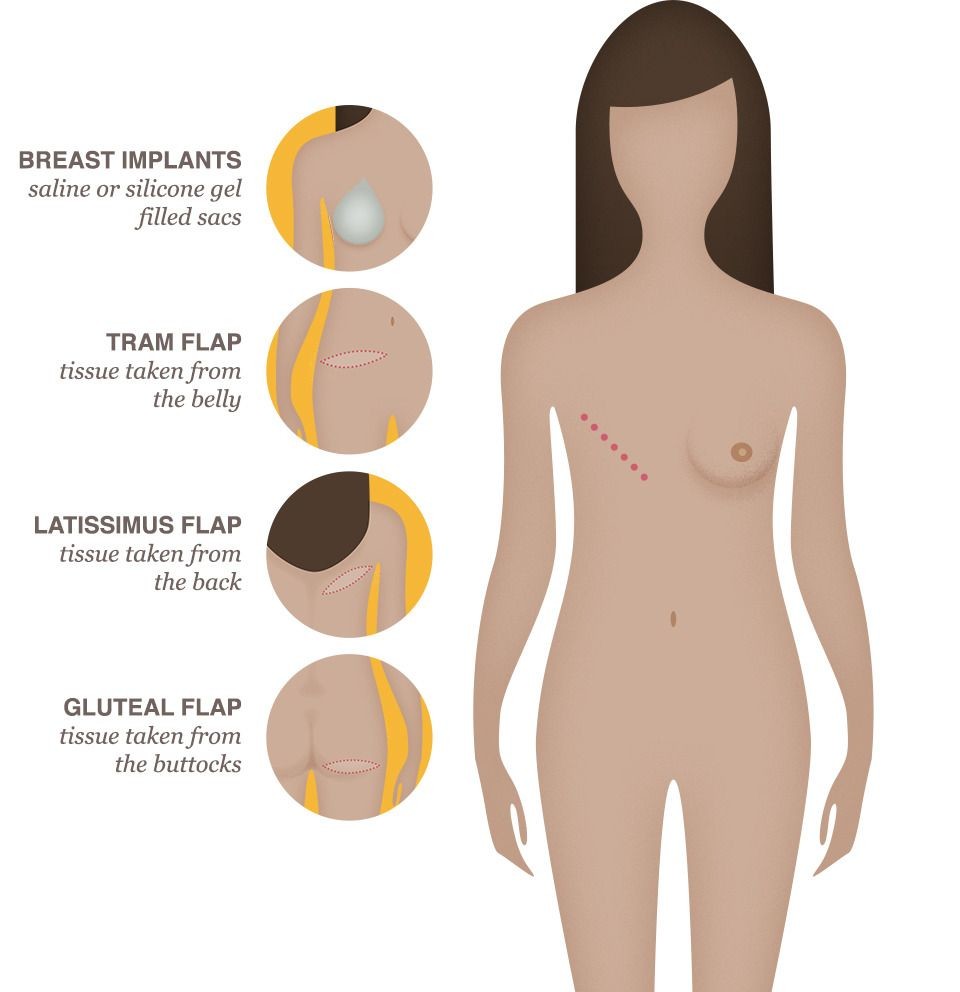
Breast reconstruction is a significant surgery undertaken to rejuvenate the physical form of a woman's chest after losing one or both breasts to cancer or another disease. In Casablanca, medical centres are well-equipped with top-tier talent in plastic surgery to facilitate this intricate procedure. Every woman's journey is different, and her treatment plan is personalized, considering her unique circumstances and needs.
It's heartening to know that breast cancer treatments like chemotherapy or radiation therapy aren't impeded by reconstruction. Moreover, this surgery doesn't spike the risk of cancer coming back. Undeniably, breast reconstruction is a major surgery with inherent risks, including chances of infection, complications with wound healing, and potential dilemmas related to implants.
What is the cost of Breast Reconstruction in Casablanca?
Undergoing surgery like Breast Reconstruction brings along a financial commitment. The expense varies extensively, depending on many factors like the complexity of the procedure, the medical professional performing the surgery, the hospital's facility, and the region, amongst others. Generally, the cost might range between $15,000 to $50,000, including multiple surgeries or intricate techniques within this estimate.
Thankfully, in many cases, insurance plans cover such surgical procedures, especially given mandates like the Women's Health and Cancer Rights Act of 1998 in the U.S. Still, out-of-pocket expenses associated with co-payment or deductibles can add up. It's recommended to navigate these aspects with your insurance provider and your chosen healthcare facility in Casablanca.
What does a Breast Reconstruction Procedure Involve?
Breast reconstruction generally happens in stages, starting with the most complex first, which may either occur at the same time as the mastectomy or later, based on the individual’s specific health conditions or treatment plan.
Two main techniques are employed in breast reconstruction. One is the use of an implant, saline, or silicone to recreate the breast shape. Two, autologous or flap reconstruction where tissue from the patient’s body like the abdomen or thigh is relocated to recreate the breast shape. The method selected is dependent on individual factors like the patient’s health, personal choice, cancer type, and stage.
After the primary surgery and post an adequate healing period, the surgeon performs a second procedure to recreate the nipple and areola. Later, to give it a natural look, the nipple-areola complex is tattooed. Remember that although it is a common procedure, complications might arise involving reaction to anaesthesia, bleeding, infection, poor healing or the need for further interventions.
How Long Should I Stay in Casablanca for a Breast Reconstruction Procedure?
Post-breast reconstruction surgery, patients typically stay in the hospital for two to five days. However, if the reconstruction was done immediately after the mastectomy, the stay could extend from three to six days.
Overall, a patient should expect to remain in Casablanca for approximately two weeks post-surgery. This allows enough time for necessary follow-ups and to address any complications, if they arise. As with any major surgical procedure, do not hasten the healing process.
What's the Recovery Time for Breast Reconstruction Procedures in Casablanca?
The recovery timeframe for breast reconstruction procedures in Casablanca varies from patient to patient. Generally, for implant-based procedures, patients may take about four to six weeks to recuperate before they return to normal routines. For more complex autologous techniques, particularly those using abdominal tissue, patients might require six to eight weeks for recovery.
Recovering patients need to temper their activities during this period. Avoid lifting heavy objects and defer strenuous exercise until your physician gives a clear signal. Medical assistance should be promptly sought if any discomforting symptoms like chronic pain, redness or swelling surface.
What's the Success Rate of Breast Reconstruction Procedures in Casablanca?
Medical success cannot just be measured in terms of complication-free postoperative progress or longevity of implants used in breast reconstruction. Patient satisfaction with their surgery, their psychological well-being following the operation, their perception of body image, and their quality of life post-surgery are equally important factors to consider. Studies indicate that between 85% to 90% of women who have undergone breast reconstruction are satisfied with the long-term results.
In Casablanca, dedicated hospitals and healthcare facilities strive to offer high-quality treatment, ensuring the best possible surgical outcomes using progressive technology and experienced professionals. Still, everyone's response to surgery varies, and outcomes depend on factors such as overall health, age, body type, and compliance with surgical advice.
Are there Alternatives to Breast Reconstruction Procedures in Casablanca?
Indeed, there are alternatives to breast reconstruction in Casablanca. The journey of every woman is unique and how she chooses to deal with the loss of a breast, or both, is a highly personal decision. Alternatives include:
- Breast Prostheses or Forms: They are silicone forms that imitate the appearance and feel of natural breast tissue. They come in diverse sizes, shapes and colours to closely match the woman's skin tone.
- Flat Closure: In this method, the surgeons sew up the chest wound smoothly, without constructing a breast mound. This option appeals to women who choose not to have more surgeries or body implants.
- Opting not to undergo reconstruction at all, also termed as "going flat: This method exhibits the woman's choice to live comfortably with her new body shape without artificial substitutes or further surgeries. It is a fully personal decision deserving respect and support.
Each of these options has pros and cons, and the choice depends on the woman’s personal preference, health status, lifestyle, and perception of her body. Regardless of the choice, it’s important to regularly monitor breast health and engage in practices that promote overall wellness.
What Should You Expect Before and After the Breast Reconstruction Procedure?
Before the surgery, comprehensive discussions with the surgeon will take place to understand treatment objectives, outcomes, and possible complications. Preoperative tests, lifestyle modifications, and nutritional advice may form a part of the preparatory process.
Postoperative care is equally important: discomfort, swelling, and bruising are normal and subside over time. Pain management strategies will be provided to help you manage discomfort effectively. Your surgeon will provide personalised guidance on caring for your surgical site, usage of medications, and physical activities.
What sort of Aftercare is Required for Breast Reconstruction Procedures in Casablanca?
The following points should be considered post-operation:
- Follow the instructions given by your doctor and take your medicines as and when prescribed.
- Consult a nutritionist for a diet plan. A healthy diet helps you recover faster.
- Do not wear a padded or underwire bra until allowed by your doctor.
- Use surgical bras in the early few days after the surgery.
- Avoid excessive unnecessary movement of your breasts.
- Do not lift heavy objects and children - it could stretch on your stitches.
- Change your bandage whenever it gets dirty. Germs can cause infection.
- Do not take a bath when the bandages are still intact. A wet bandage can also be the cause of infection.
- Abstain from sexual activity for at least 6 weeks.
- Take rest - give yourself time to recover.
How Do I Prevent Cancer from Recurring?
Preventing cancer recurrence largely revolves around a balanced, healthy lifestyle coupled with regular medical check-ups. Regular exercise, maintaining a healthy weight, and eating nutritiously can contribute to cancer prevention. Smoke cessation and limiting exposure to secondhand smoke are crucial for both prevention and postoperative recovery.
Regular breast self-examinations, as well as mammograms and follow-up visits, are critical for early detection of any recurrence. Stress management techniques like yoga, meditation, and spending time in nature can also play an essential role in overall health.
Your medical team in Casablanca is there to support you, offering advice tailored to your individual health status and medical history. Remember, proactive health checks are key to maintaining overall health and preventing the recurrence of diseases like cancer.
What is the ideal time to have Breast Reconstruction surgery after a Mastectomy in Casablanca?
The decision regarding when to have Breast Reconstruction following a Mastectomy in Casablanca is largely based on the individual's health status, treatment plan, personal preferences, and discussions with the oncology team. Breast reconstruction can be done at the time of mastectomy (immediate reconstruction) or at a later date (delayed reconstruction). Immediate reconstruction might offer psychological benefits and less overall surgery since both procedures are done together. Yet, if additional treatments such as radiation therapy are required post-mastectomy, opting for delayed reconstruction could be advisable to avoid risks posed by radiation to the new construct.
Remember that deciding on the timing of breast reconstruction is a personal choice and should be made in consultation with your healthcare providers. They can provide specific guidance based on your health condition and treatment plan.
How Will Breast Reconstruction in Casablanca Impact My Routine Mammograms and Breast Cancer Detection?
Breast reconstruction surgery may impact the way routine breast cancer screenings are conducted. After a mastectomy with or without reconstruction, women usually don't need routine screening mammograms on the treated side since all breast tissue has been removed. However, they would need routine mammograms for the untreated breasts.
If you've had reconstruction using your own body tissue, your surgeon or oncologist will guide you on whether or not you'll require mammograms on the reconstructed breast. Remember, mammograms can still be performed on reconstructed breasts, and self-breast exams should be a regular part of your health routine.
Whilst the information presented here has been accurately sourced and verified by a medical professional for its accuracy, it is still advised to consult with your doctor before pursuing a medical treatment at one of the listed medical providers
No Time?
Tell us what you're looking for and we'll reachout to the top clinics all at once
Enquire Now

Popular Procedures in Casablanca
Prices Start From $497

Prices Start From $208

Prices Start From $834

Prices Start From $500

Prices Start From $93

Prices Start From $85

Recommended Medical Centers in Casablanca for Breast Reconstruction

- Interpreter services
- Translation service
- Religious facilities
- Medical records transfer
- Medical travel insurance
- Health insurance coordination
- TV in the room
- Safe in the room
- Phone in the room
- Private rooms for patients available

- Interpreter services
- Translation service
- Religious facilities
- Medical records transfer
- Medical travel insurance
- Health insurance coordination
- TV in the room
- Safe in the room
- Phone in the room
- Private rooms for patients available

- Interpreter services
- Translation service
- Religious facilities
- Medical records transfer
- Medical travel insurance
- Health insurance coordination
- TV in the room
- Safe in the room
- Phone in the room
- Private rooms for patients available

- Interpreter services
- Translation service
- Religious facilities
- Medical records transfer
- Medical travel insurance
- Health insurance coordination
- TV in the room
- Safe in the room
- Phone in the room
- Private rooms for patients available

- Interpreter services
- Translation service
- Religious facilities
- Medical records transfer
- Medical travel insurance
- Health insurance coordination
- TV in the room
- Safe in the room
- Phone in the room
- Private rooms for patients available

- Interpreter services
- Translation service
- Religious facilities
- Medical records transfer
- Medical travel insurance
- Health insurance coordination
- TV in the room
- Safe in the room
- Phone in the room
- Private rooms for patients available

- Interpreter services
- Translation service
- Religious facilities
- Medical records transfer
- Medical travel insurance
- Health insurance coordination
- TV in the room
- Safe in the room
- Phone in the room
- Private rooms for patients available

- Interpreter services
- Translation service
- Religious facilities
- Medical records transfer
- Medical travel insurance
- Health insurance coordination
- TV in the room
- Safe in the room
- Phone in the room
- Private rooms for patients available

- Interpreter services
- Translation service
- Religious facilities
- Medical records transfer
- Medical travel insurance
- Health insurance coordination
- TV in the room
- Safe in the room
- Phone in the room
- Private rooms for patients available

- Interpreter services
- Translation service
- Religious facilities
- Medical records transfer
- Medical travel insurance
- Health insurance coordination
- TV in the room
- Safe in the room
- Phone in the room
- Private rooms for patients available
Breast Reconstruction in and around Casablanca
About Casablanca
Casablanca is the largest city in Morocco and is located in the central-western part of the country. Many local and international companies set up their headquarters in this city, making it the primary industrial zone of the country. Casablanca might be the least popular tourist destination in the country, but take a closer look, it does have a lot of hidden gems. Tourists will find many astonishing things to see here. From beaches, markets, culture, to Art Deco architecture, this city is definitely worth a visit.
In line with Morocco’s emerging medical tourism, Casablanca welcomes an increasing number of medical tourists each year. The city is considered to be the most developed market for medical tourists, which in turn as made it one of the leading destinations for medical tourism in Africa. The medical system is divided into two sectors, public and private. The city is known for its modern medical facilities equipped with high-tech equipment. People from the Middle East, Europe, and the United States choose the city for cosmetic surgery and dental procedures, while people from other African countries with inferior medical centers come to have better healthcare. For medical tourists from Western countries, medical treatment in Casablanca is a lot more affordable.
Popular Areas in Casablanca
Casablanca is the main gateway to Morocco and despite only having a few tourist attractions; visitors will find some gems after a little exploration.
- Hassan II Mosque was completed in 1993 and built on a platform overlooking the Atlantic Ocean. Covering around two hectares in size and can accommodate more than 100,000 worshippers, it is the second-largest mosque in the world. The dramatic location combined with the beautiful architecture offers a unique experience of praying.
- The Medina or the old city district is a perfect place to wander around. The maze-like alleyways hide many things waiting to be discovered. Tourists can experience the local’s daily life, have some tasty food in one of the cafes, find traditional treasures in one of its shops, or just stroll around and admire its beauty.
- Cathedral du Sacre Coeur may have been left to waste away in the past decades, but tourists can still see its beautiful structure and architecture. The guardian will sometime let tourists inside to get a sense of the building’s interior. The architecture is a perfect mix of European and Moroccan style.
- Central Market is the place for tourists who want to shop and it is a bustling market where locals buy and sell groceries, but tourists usually come for Morocco’s famous slippers or solely for an opportunity to get amazing photos. Do a little haggling and take home some beautiful local souvenirs.
- Corniche or beachfront district is located in the same region as the Hassan II Mosque. The shoreline is filled with luxury restaurants, hotels, and beach clubs. There is also a public beach packed with surfers and swimmers. During sunny days, especially on weekends, people come to picnic on the beaches, have a refreshing dip in the sea, or splash around in swimming pools.
Weather and Climate in Casablanca
The weather in this charming city can be quiet hot as it has a hot-summer Mediterranean climate. Thanks to the cool Canary current off the Atlantic coast, there are always cool breezes even during the hottest days. The summer generally starts in June and ends in August. June is the driest month in Casablanca and August is the hottest month with an average temperature of around 26 °C. The temperature will decrease in October and the average rainfall will increase in December. Winter starts in December and visitors can expect January to be the coldest month with the temperature ranging from 7 °C to 17 °C. February experiences a lot of rain, making it the wettest month of the year.
Getting Around in Casablanca
Casablanca is home to the country’s primary international airport: Casablanca's Mohammed V International Airport. It is the busiest airport in Morocco, located in Nouaceur Province and the airport operates both domestic and international flights which connect the city to many major cities in the Middle East, America, and Europe. Several budget airlines such as Air Arabia Maroc, Transavia Airlines, and Pegasus Airlines operate flights to and from this airport.
There are plenty of options to get around Casablanca and tourists can try the tram to get a good look at the city. The tram operates from 06.00 AM to 10.30 PM. The line connects some of the main neighborhoods and consists of 48 stops. The most inexpensive way to get around the city is by bus and it costs around 5 MAD. It is best to begin your journey at the designated stops along each bus route instead of stopping a bus in transit.
Taxis are widely available and there are two kinds of taxis: The Red taxi (Petit Taxi) or the White Taxi. The red taxi is a shared taxi, typically by four passengers. The White taxis act like buses with a set route and a fixed price, but the ride is much faster than the bus and you should always pay the driver at the start of your trip.
Tourist Visas in Casablanca
Citizens of 66 countries including Australia, New Zealand, the United States, the European Union, and Japan can enter and stay in the country for up to 90 days without a visa. Citizens of Mali, Guinea, and the Republic of the Congo do not need a visa to enter but must obtain an Electronic Travel Authorization. It is best to always check the current regulations to the Moroccan Embassy or Consulate in your country.
Additional Information
- Local Currency: Moroccan Dirham (MAD) is the official currency. The exchange rate from 1 USD is 9.70 MAD.
- Money & Payments: The easiest way to access money is by the ATMs which can be found easily around the city. Credit cards are mostly accepted in high-end restaurants and hotels. Tipping can be mandatory sometimes.
- Local Language: The official language is Arabic and Berber. French is widely spoken and understood. While English is not widely spoken, there are many people who can speak English, especially in tourist areas.
- Local Culture and Religion: Most of the population are Muslims. Nevertheless, Christianity, Judaism, and Baha’i Faith are freely practiced.
- Public Holidays: The city celebrates Islam religious holidays such as Eid al-Fitr, Islamic New Year, and Prophet Muhammad’s Birthday.
Popular Searches
- Plastic Surgery in Thailand
- Dental Implants in Thailand
- Hair Transplant in Thailand
- Breast Augmentation Thailand
- Gastric Sleeve in Thailand
- Gender Reassignment Surgery in Thailand
- Laser Hair Removal in Bangkok
- Botox in Bangkok
- Dermatology in Bangkok
- Breast Augmentation in Bangkok
- Coolsculpting in Bangkok
- Veneers in Turkey
- Hair Transplant in Turkey
- Rhinoplasty in Turkey
- Stem Cell Therapy in Mexico
- Rhinoplasty in Mexico
- Liposuction in Mexico
- Coolsculpting in Tijuana
- Rhinoplasty in Korea
- Scar Removal in Korea
- Gastric Sleeve in Turkey
- Bone Marrow Transplant in India
- Invisalign in Malaysia
- Plastic Surgery in the Dominican Republic
- Tummy Tuck in the Dominican Republic
- Plastic and Cosmetic Surgery in Poland
- Rhinoplasty in Poland
- Hair Implant in Poland
- Dental Implants in Poland
- IVF in Turkey
